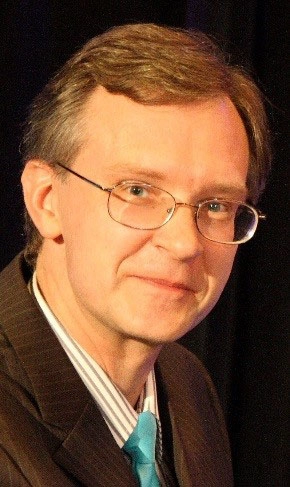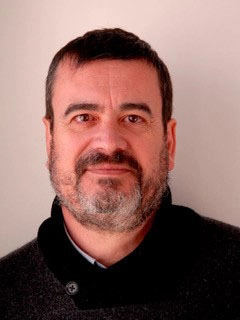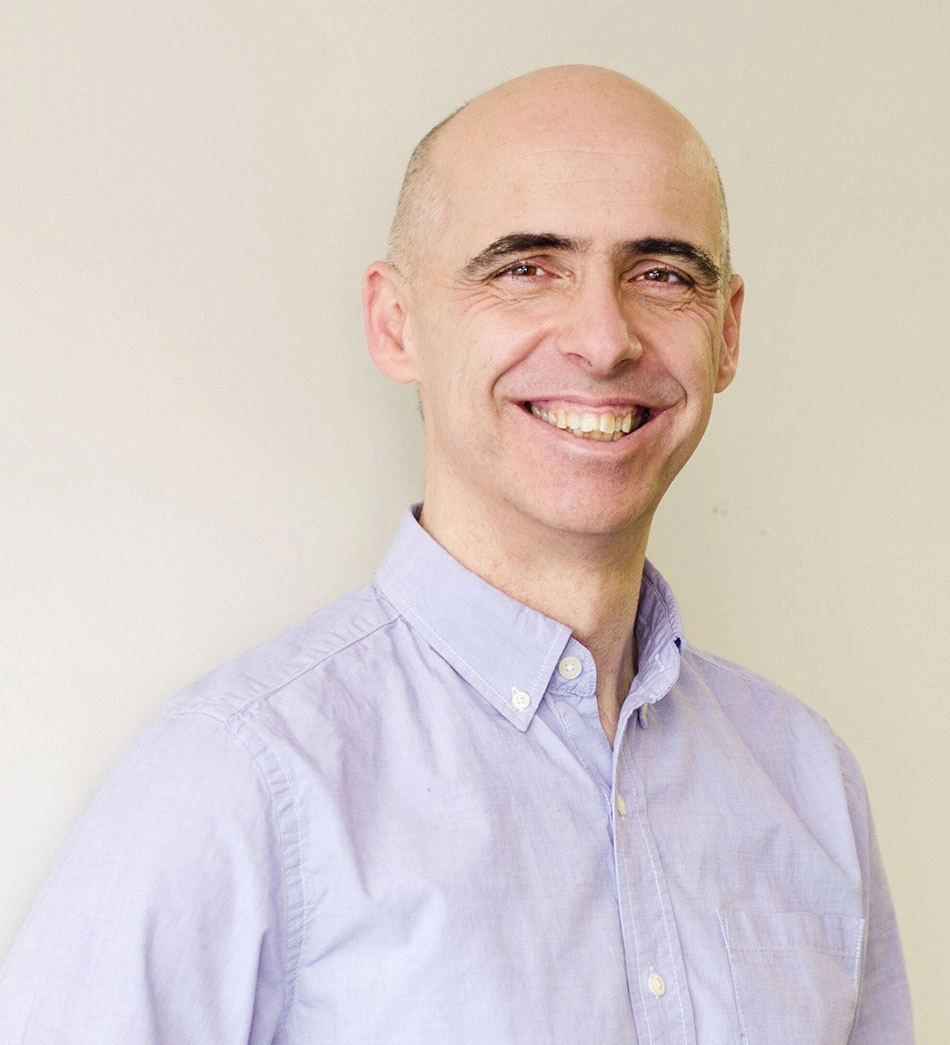 Danil Prokhorov is head of the Future Research Department in Toyota Motor North America R&D. He started his research career in Russia. He studied system engineering which included courses in math, physics, mechatronics and computer technologies, as well as aerospace and robotics. He received his M.S. with Honors in St. Petersburg, Russia, in 1992. After receiving Ph.D. in 1997, he joined the staff of Ford Scientific Research Laboratory, Dearborn, Michigan. While at Ford he pursued machine learning research focusing on neural networks with applications to system modeling, powertrain control, diagnostics and optimization. He has been involved in research and planning for various intelligent technologies, such as highly automated vehicles, AI and other futuristic systems at Toyota Tech Center (TTC), Ann Arbor, MI since 2005. Since 2011 he is in charge of future research department in Toyota Motor North America R & D. He has been serving as a panel expert for NSF, DOE, ARPA, Senior and Associate Editor of several scientific journals for over 20 years. He has been involved with several professional societies including IEEE Intelligent Transportation Systems (ITS) and IEEE Computational Intelligence (CI), as well as International Neural Network Society (INNS) as its former Board member, President and recently elected Fellow. He has authored lots of publications and patents. Having shown feasibility of autonomous driving and personal flying mobility, his department continues research of complex multi-disciplinary problems while exploring opportunities for the next big thing.
Danil Prokhorov is head of the Future Research Department in Toyota Motor North America R&D. He started his research career in Russia. He studied system engineering which included courses in math, physics, mechatronics and computer technologies, as well as aerospace and robotics. He received his M.S. with Honors in St. Petersburg, Russia, in 1992. After receiving Ph.D. in 1997, he joined the staff of Ford Scientific Research Laboratory, Dearborn, Michigan. While at Ford he pursued machine learning research focusing on neural networks with applications to system modeling, powertrain control, diagnostics and optimization. He has been involved in research and planning for various intelligent technologies, such as highly automated vehicles, AI and other futuristic systems at Toyota Tech Center (TTC), Ann Arbor, MI since 2005. Since 2011 he is in charge of future research department in Toyota Motor North America R & D. He has been serving as a panel expert for NSF, DOE, ARPA, Senior and Associate Editor of several scientific journals for over 20 years. He has been involved with several professional societies including IEEE Intelligent Transportation Systems (ITS) and IEEE Computational Intelligence (CI), as well as International Neural Network Society (INNS) as its former Board member, President and recently elected Fellow. He has authored lots of publications and patents. Having shown feasibility of autonomous driving and personal flying mobility, his department continues research of complex multi-disciplinary problems while exploring opportunities for the next big thing.
 Carles Sierra is Director of the Artificial Intelligence Research Institute (IIIA) of the Spanish National research Council (CSIC) located in Barcelona. He has been contributing to Artificial Intelligence research since 1985 in the areas of Knowledge Representation, Auctions, Electronic Institutions, Autonomous Agents, Multiagent Systems and Agreement Technologies. He has participated in more than 20 projects funded by the European Union, is or has been a member of several editorial boards of journals, including AIJ and JAIR, two of the most prestigious generalist journals, and was the editor in chief of the JAAMAS journal, specialized in autonomous agents. He organized IJCAI, the most important international artificial intelligence conference, in 2011 in Barcelona and was the President of the IJCAI Program Committee 2017 in Melbourne. He is a Fellow of the European Association of AI, EurAI, and recipient of the ACM/SIGAI Autonomous Agents Research Award 2019.
Carles Sierra is Director of the Artificial Intelligence Research Institute (IIIA) of the Spanish National research Council (CSIC) located in Barcelona. He has been contributing to Artificial Intelligence research since 1985 in the areas of Knowledge Representation, Auctions, Electronic Institutions, Autonomous Agents, Multiagent Systems and Agreement Technologies. He has participated in more than 20 projects funded by the European Union, is or has been a member of several editorial boards of journals, including AIJ and JAIR, two of the most prestigious generalist journals, and was the editor in chief of the JAAMAS journal, specialized in autonomous agents. He organized IJCAI, the most important international artificial intelligence conference, in 2011 in Barcelona and was the President of the IJCAI Program Committee 2017 in Melbourne. He is a Fellow of the European Association of AI, EurAI, and recipient of the ACM/SIGAI Autonomous Agents Research Award 2019.
 Dr Gregory G. Slabaugh is an Honorary Visiting Fellow at City, University of London and Chief Scientist in Computer Vision (Europe) for Huawei Technologies Research and Development. He has a broad background in computer vision and medical image analysis. He earned a PhD (highest honours) in Electrical Engineering from Georgia Institute of Technology in Atlanta, USA. Previous appointments include positions in academia and industry, including City, University of London, Medicsight, and Siemens. He holds 36 granted patents and has over 150 publications in computer vision and medical image analysis. He is a Senior Member of IEEE.
Dr Gregory G. Slabaugh is an Honorary Visiting Fellow at City, University of London and Chief Scientist in Computer Vision (Europe) for Huawei Technologies Research and Development. He has a broad background in computer vision and medical image analysis. He earned a PhD (highest honours) in Electrical Engineering from Georgia Institute of Technology in Atlanta, USA. Previous appointments include positions in academia and industry, including City, University of London, Medicsight, and Siemens. He holds 36 granted patents and has over 150 publications in computer vision and medical image analysis. He is a Senior Member of IEEE.
 Csaba Szepesvári is the team-lead for the "Foundations" team at DeepMind, UK
and a Professor of Computing Science at the University of Alberta. He earned his PhD in 1999 from Jozsef Attila University, in Szeged, Hungary. He has authored three books and about 200 peer-reviewed journal and conference papers. He serves as the action editor of the Journal of Machine Learning Research and Machine Learning, as well as on various program committees.
Csaba Szepesvári is the team-lead for the "Foundations" team at DeepMind, UK
and a Professor of Computing Science at the University of Alberta. He earned his PhD in 1999 from Jozsef Attila University, in Szeged, Hungary. He has authored three books and about 200 peer-reviewed journal and conference papers. He serves as the action editor of the Journal of Machine Learning Research and Machine Learning, as well as on various program committees.
Dr. Szepesvari's interest is artificial intelligence (AI) and, in particular, principled approaches to AI that use machine learning. He is the co-inventor of UCT, a widely successful Monte-Carlo tree search algorithm, which ignited much work in AI, such as DeepMind's AlphaGo which defeated the top Go professional Lee Sedol in a landmark game. This work on UCT won the 2016 test-of-time award at ECML/PKDD.